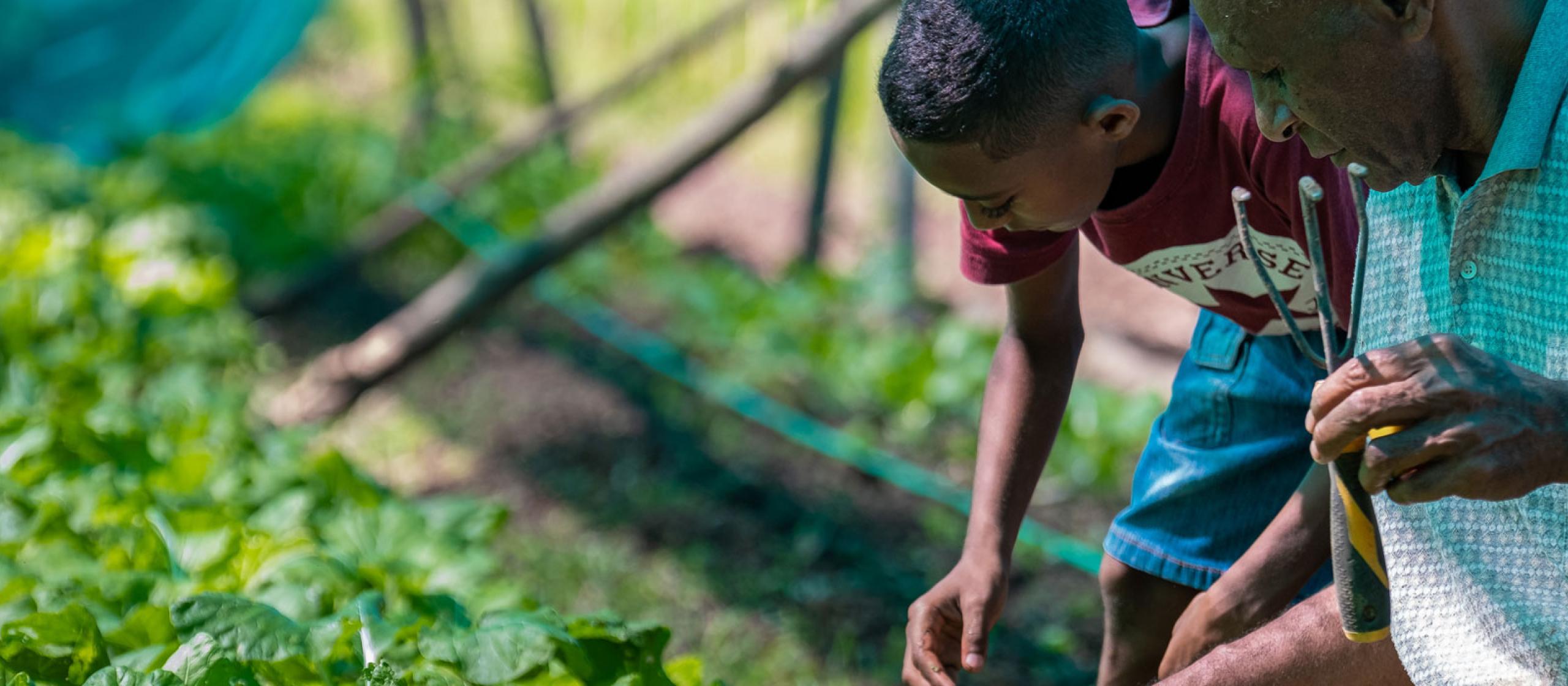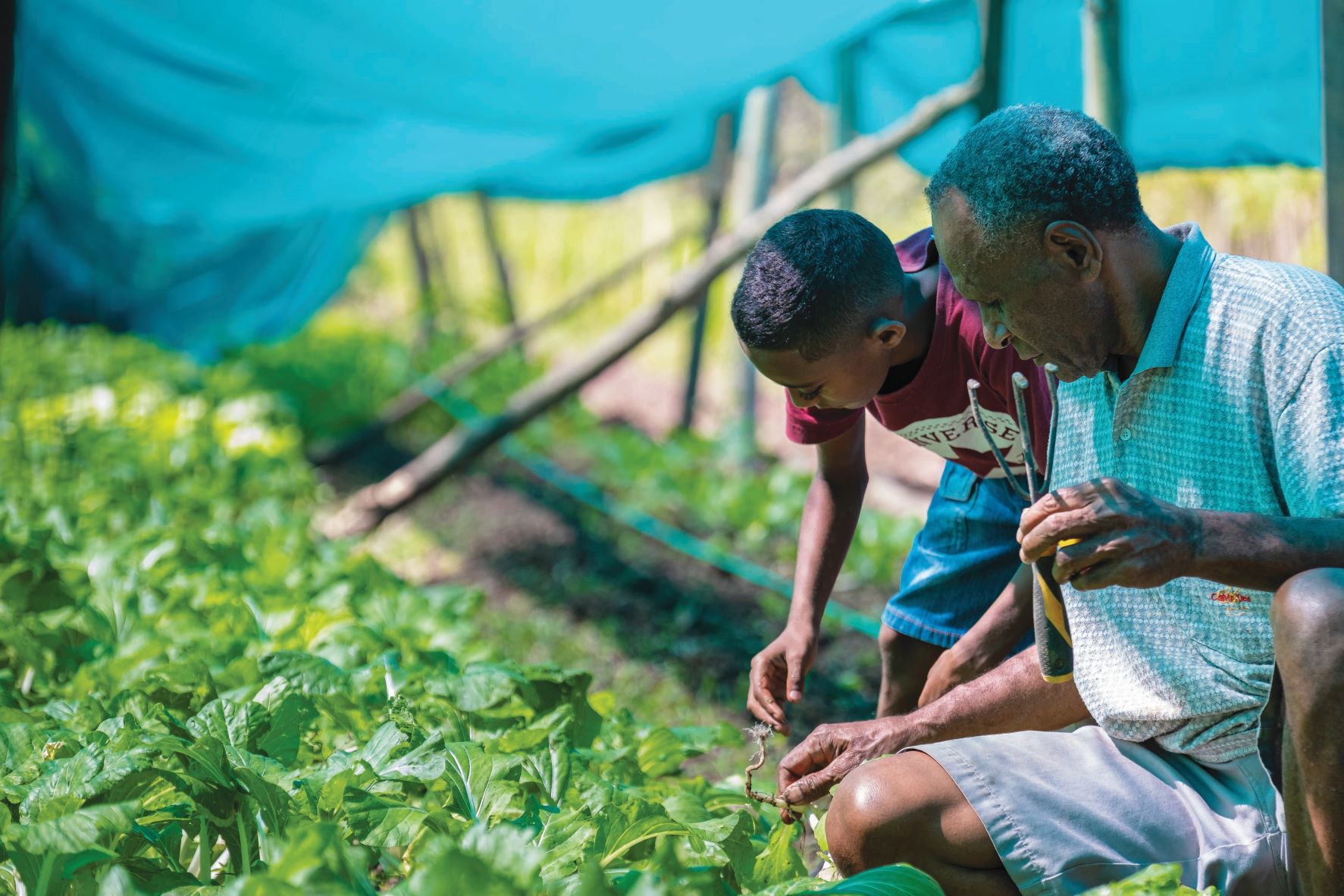A little shelter in summer goes a long way to improving crop production and the livelihoods of smallholder farmers in the Pacific region.
While many other countries around the world use protected cropping to keep their plants warm, in Fiji, Samoa and Tonga, structures such as walk-through tunnels, shade houses and plastic housing keep damaging summer rains off delicate vegetables and offer some sun protection too.
As part of an ACIAR-supported horticultural project, farmers in these 3 countries have been trialling a stepped approach to protected cropping. They begin with relatively simple structures, made from readily available materials such as bamboo, plastic, timber, shade cloth and even galvanised iron.
With a shelter in place, farmers plant vegetables in the summer off-season, from November to April, such as tomatoes, lettuce, capsicums and cucumbers. This allows them to tap into premium markets for their vegetables at a time of year when many Pacific countries rely on vegetable imports.
The recently completed 5-year ACIAR-supported project worked directly with about 40 smallholder farmers helping to test this new way of farming while developing new skills and knowledge. Hundreds more people have been exposed to the project through local farmer and village networks.




